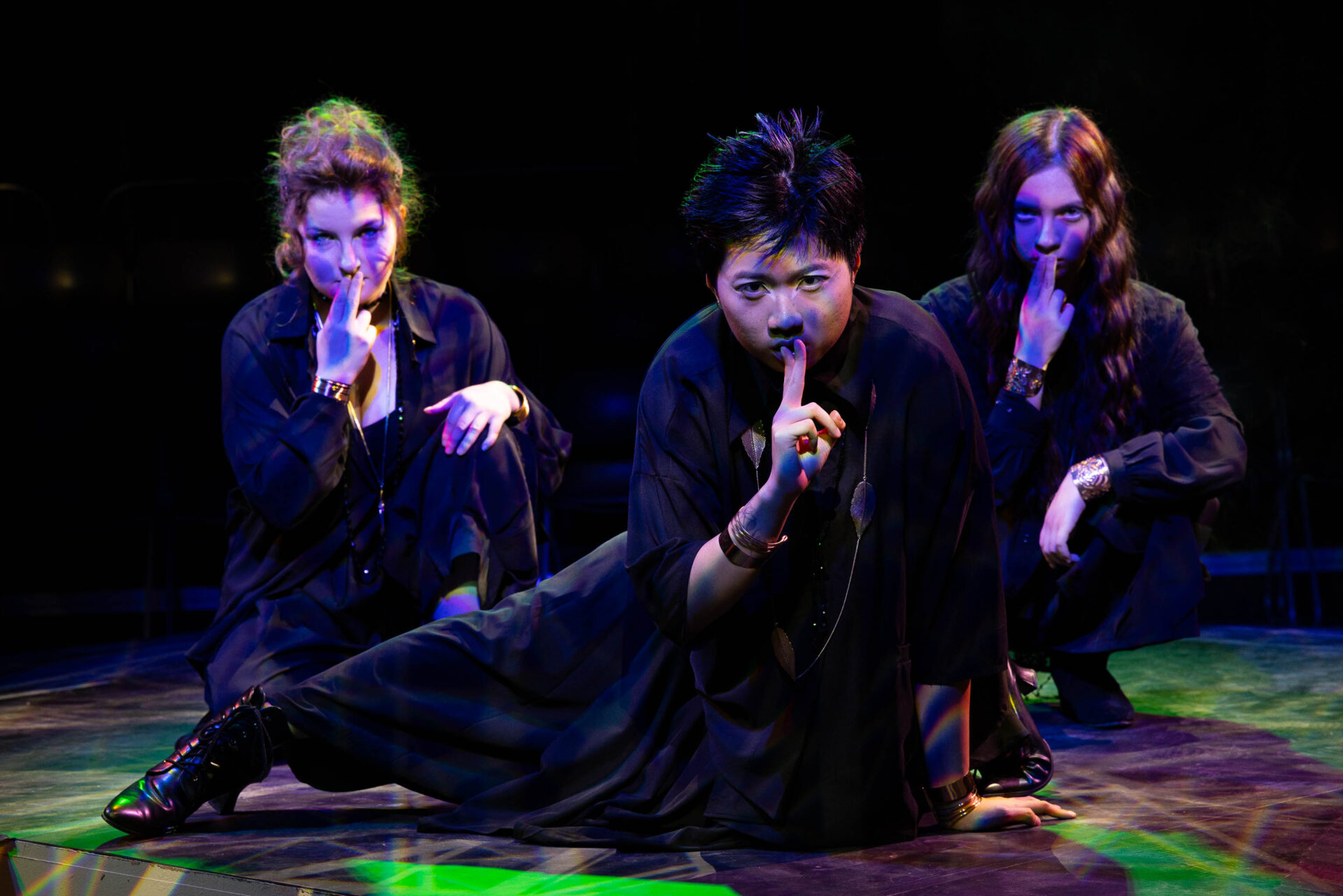People in the theater world call it “The Scottish Play.” Saying the actual name of the famous play by William Shakespeare — ”Macbeth” — inside any theater puts a curse on whatever production is happening and even the person who utters it. It’s a superstition that has survived generations, is retold and even adhered to from off-Broadway shows to high school drama classes.
It’s why Chris Rock got slapped by Will Smith.
No, per the growing theater lore, it was not because Rock made a joke about Jada Pinkett-Smith, prompting the Fresh Prince to walk on stage and slap his wife’s name out of Rock’s mouth. It was because seconds into his monologue at the 2022 Oscars, Rock shouted out Denzel Washington for his performance in the 2021 film “The Tragedy of Macbeth.”
“Denzel! ‘Macbeth!’ Loved it!”
Rock said this inside Hollywood’s Dolby Theater, emphasis on theater. And exactly 53 seconds later, as Rock described it live, “Will Smith just smacked the shit out of me.” The curse had struck again.
From death of loved ones to poor turnout, thespians across America and Great Britain have horror stories they attribute to vocalizing the name “Macbeth” inside a theater. The curse is only reversed by leaving the theater and performing some agreed-upon ritual — such as running and spitting — to undo the hex.
All of this begs the question: How can the LPC theater program present “Macbeth,” with six performances over two weekends beginning Oct. 25, without enacting the curse?
Isn’t Titian Lish, the decorated department coordinator for theater and performing arts at LPC, worried about invoking evil spirits by having the name “Macbeth” spoken in the Main Theater of the Mertes Center for the Arts?
“Not at all,” Lish said. “I use the name freely.”
CURSE BE DAMNED: LPC will perform Macbeth, which director Titian Lish described as an interesting challenge for the program. (Photo courtesy of LPC Theater)
“Macbeth” is considered in theater to be one of the greats in all of Shakespeare’s plays. Its universal themes make the production a timeless work that appeals to any audience. The ideas of moral reasoning, ambition, darkness, guilt and fate are forever relevant.
The process of choosing “Macbeth” was like all others and required collaboration from the faculty and theater crew.
Lish said the selection of what they will perform begins with spitballing ideas. They discuss the learning outcomes and the kind of projects they want students to work on. Then she selects the season’s plays and musicals, running them by the department and tech team for input.
Cecily Hansson, in her second semester on campus, will make her debut for LPC’s theater program in the lead role as Macbeth. Maahee Joshi, who will also play Lady Macbeth, is also taking part in her first production at LPC and in the U.S. as she moved here from India a year ago. Roman Bolusan — an alumnus of the Actors Conservatory at Las Positas College who spent the summer touring with The Prague Shakespeare Company — is playing Banquo. Miles Vetrovec plays the critical role of Macduff and Bee Azevedo, in her first production as Las Positas, plays Lady Macduff.
“It is one of the favorite Shakespearean plays of our technical director (John Kelly),” said Lish, who adapted the text of the play for clarity and length, making the production more fitting for the theater’s audience. “And we hadn’t done a work of Shakespeare in a long time, so it felt like the right timing and seemed like an interesting challenge, directorially.”
The superstition began in 1898 with critic Max Beerbohm, who wrote a column claiming a young male actor had died just before the play’s debut. It sparked a grassroots trend of stories about accidents and deaths connected to “Macbeth.”
But even before then, the play is steeped in sorcery. King James IV of Scotland’s obsession with witchcraft began in 1587. That’s when his mother Mary, Queen of Scotland, was executed. Witch hunts became popular under his reign.
“Macbeth” was written in 1606 and most research concludes it was first performed for King James in his court towards the end of that year. April 20, 1611, at Globe Theater in London is considered the earliest public performance of the Shakespeare play.
People began to realize Shakespeare’s research was centered around a group of sister sorcery. Chants spoken in the play itself are said to be ingredients of actual spells that had been recorded.
As legend would have it, a curse was put on the play at the beginning because a coven of witches objected to Shakespeare’s use of real “incantation.” From its debut, the play was enveloped with mysterious disasters. Shakespeare himself had to play the role of Lady Macbeth because the original actor suddenly died. Another legend tells of an actor dying when a real dagger was used in the play in the death of King Duncan.
Still, the appeal of “Macbeth” has always been exceptional. Its popularity has survived for centuries. It was such a sure bet that theater houses desperate for money would put on the production. If a play was in session and not doing well, suddenly switching to “Macbeth” was a sure way to draw a crowd. “Macbeth” was, and still is, a fan favorite.
Younger generations often view Shakespeare’s writings as antiquated. Its complicated language, Early Modern English, can often be a turnoff.
“I don’t find the play any more difficult than any other text,” Lish said. “There are challenges with all shows, and those can be really rewarding.
“So while the text may be elevated,’ she added, “theater production is all about balance, learning, and working as a team. They have done a fabulous job supporting and celebrating each other.”
TOP PHOTO: Cecily Hansson (left) and Maahee Joshi will make their LPC theater debuts together as Macbeth and Lady Macbeth. (Photo courtesy of LPC Theater)
Camille Leduc is the managing editor of The Express. Follow her on X, formally Twitter, @CLeduc7603.





